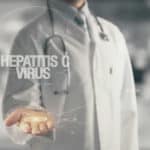Hepatitis C Antibody Begins Human Testing
Public release date: 6-Aug-2009
Contact: Michael Cohen
Michael.Cohen@umassmed.edu
508-868-4778
University of Massachusetts Medical School
First human gets new antibody aimed at hepatitis C virus
Phase 1 clinical trial in healthy subjects designed to advance novel treatment to prevent
Boston, Mass. — Building upon a series of successful preclinical studies, researchers at MassBiologics of the University of Massachusetts Medical School (UMMS) today announced the beginning of a Phase 1 clinical trial, testing the safety and activity of a human monoclonal antibody they developed that can neutralize the Hepatitis C virus (HCV).
The first volunteer received the antibody known as MBL-HCV1 on July 28, 2009, and the study is now proceeding and will eventually involve 30 healthy subjects in a dose-escalation trial expected to conclude later this year. “We are pleased that this program has now entered the clinical trial phase,” said Donna Ambrosino, MD, executive director of MassBiologics and a professor of pediatrics at the Medical School. “This trial will test the safety of the antibody and measure its activity in the subjects. This will help us determine the useful dose and other parameters as we plan for the next step in this program, which will be a Phase 2 study in liver transplant patients.”
HCV attacks the liver and can eventually lead to liver failure. According to the U.S. Centers for Disease Control and Prevention, 3.2 million Americans are chronically infected with HCV and some 10,000 die annually of the disease. Globally, as many as 170 million people are estimated to suffer from HCV infection. For the most serious cases of HCV that do not respond to antiviral drugs, liver transplantation is the only option.
HCV is the leading indication for liver transplantation, diagnosed in about half of the 6,000 liver transplants done each year in the United States. Transplantation can be a life-saving treatment; however, in nearly all cases the patient’s new liver is eventually infected by HCV because the virus remains in the patient’s bloodstream during surgery. The powerful antiviral drugs now used to attack HCV prior to end-stage liver failure are not routinely used during surgery due to the patients’ weakened condition and because of the strong medication that must be used to prevent the body from rejecting the new liver. After re-infection with HCV, nearly 40 percent of patients suffer rapid liver failure, with markedly reduced survival rates.
To close that clinical gap, the new antibody developed at MassBiologics is designed to be a therapy shortly before and after transplant surgery. By giving a patient the new antibody before and during the time when the donor liver is implanted, researchers hope the HCV virus left in the bloodstream will be neutralized and rendered unable to infect the new liver. Then, because monoclonal antibodies are highly specific and typically have little or no side-effects, additional dosages of the new antibody could, theoretically, be given immediately after transplant surgery to continue neutralizing any remaining virus.
It is also possible, researchers theorize, that the antibody could be used in combination with new antiviral drugs for treatment in patients with newly diagnosed HCV infection. “There is still more work to be done, but we are encouraged by the progress of this program to date,” Dr. Ambrosino noted. “And we are grateful to the people who have volunteered to participate in this Phase 1 study. These subjects’ participation will help others and advance the cause of human health.”
—
About MassBiologics
MassBiologics, also known as the Massachusetts Biologic Laboratories, is the only non-profit FDA- licensed manufacturer of vaccines and other biologic products in the United States. MassBiologics produces 30 percent of the US tetanus/diphtheria vaccine supply. In addition to the HCV program, MassBiologics has discovered and developed human monoclonal antibodies to severe acute respiratory syndrome (SARS), and to Clostridium difficile (C. difficile), which have shown efficacy in Phase 2, and to rabies which will be starting Phase 1 soon in collaboration with the Serum Institute of India. MassBiologics traces its roots to 1894, and since then has maintained a mission to improve public health through applied research, development and production of biologic products. MassBiologics has been a part of the University of Massachusetts Medical School since 1997.
About the University of Massachusetts Medical School
The University of Massachusetts Medical School has built a reputation as a world-class research institution, consistently producing noteworthy advances in clinical and basic research. The Medical School attracts more than $200 million in research funding annually, 80 percent of which comes from federal funding sources. The work of UMMS researcher Craig Mello, PhD, an investigator of the prestigious Howard Hughes Medical Institute (HHMI), and his colleague Andrew Fire, PhD, then of the Carnegie Institution of Washington, toward the discovery of RNA interference was awarded the 2006 Nobel Prize in Physiology or Medicine and has spawned a new and promising field of research, the global impact of which may prove astounding. UMMS is the academic partner of UMass Memorial Health Care, the largest health care provider in Central Massachusetts. For more information, visit www.umassmed.edu.
—
URL for Article Source:
http://www.eurekalert.org/pub_releases/2009-08/uomm-fhg080609.php







